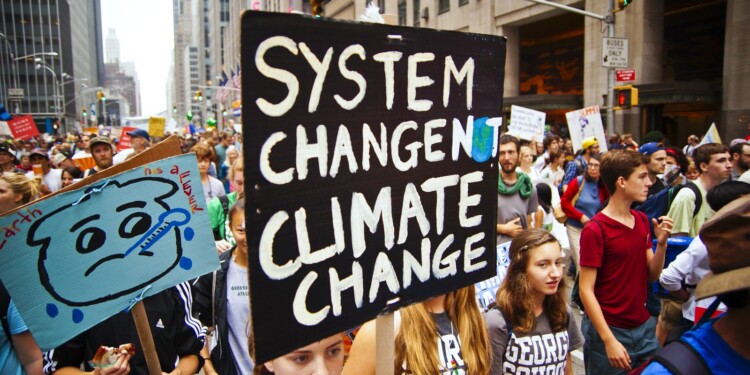The annual Earth Day event is coming up on April 22 to demonstrate support for environmental protection. First held over 50 years ago, on April 22, 1970, it now includes a wide range of events coordinated globally by EarthDay.org and involves one billion people in more than 193 countries. The official theme for Earth Day 2022 is to “Invest In Our Planet”.
“This is the moment to change it all — the business climate, the political climate, and how we take action on climate. Now is the time for the unstoppable courage to preserve and protect our health, our families, our livelihoods… together, we must Invest In Our Planet”, said EarthDay.Org.
This Earth Day, with its focus on financing for climate change, takes place at a critical moment; a new report from Reclaim Finance, a nonprofit which published a scorecard grading investment firms on their environmental commitments, found broken promises on the part of bankers and asset managers who just a year ago pledged to fight global warming.
In point of fact, the report revealed that 30 of the biggest asset managers have at least $550 billion invested in oil, gas and coal companies that have expansion plans, and even more alarmingly, they continue to provide “fresh cash to companies that are ignoring climate science,” said by Lara Cuvelier, sustainable investment campaigner at Reclaim Finance.
However, new efforts are being made by major financial institutions in order to accelerate investments to combat climate change, and preserve the environment. Two of them stand out; the International Monetary Fund created its Resilience and Sustainability Trust, and the international non-profit Global Citizen is planning to launch the Global Citizen Impact Funds.
IMF’s new Trust for low- and middle-income countries to address climate change and pandemics
The IMF’s board approved creation of the new trust last week to help low-income and most middle-income countries deal with longer-term challenges, such as climate change and pandemics, with a goal of raising at least $45 billion.
The International Monetary Fund expects members to make “significant” pledges of support for its newly approved Resilience and Sustainability Trust, said Craig Beaumont deputy director of the IMF’s Finance Department during the IMF-World Bank spring meetings beginning this week.
Beaumont gave no details on which countries would contribute, or the exact amounts expected. He said members were finalising their plans, and some countries would need the approval of their parliaments first.
Global Citizens launches six funds to help poorer countries meet their SDG commitments
Global Citizen, also known as Global Poverty Project, is an international education and advocacy organisation working to catalyse the movement to end extreme poverty. The organisation announced its plan to launch six funds, called the Global Citizen Impact Funds, focusing on education, equity, food security, health, sustainability, and water. Each fund will mobilise a minimum of $25M and up to $1B in results-based donations to each impact area.
The Global Citizen Impact Funds aim to contribute to funding for poorer countries struggling to meet the United Nations 2030 Sustainable Development Goals, which include providing access to clean water and fighting climate change.
The world’s poorest countries need close to $400 billion annually in external finance to meet the SDG goals, but currently only get a fraction of that, Global Citizen’s Chief Policy Officer Mick Sheldrick told Reuters.
In order to stimulate faster change, Global Citizen said its funds, created with partner NPX, would bring together philanthropists and investors using a financing model that it believes would prove scaleable quickly.
Global Citizen hopes to start raising donor money over the next six to nine months, and is targeting at least $25 million for each fund, although most of the NGOs chosen to receive funding could scale quickly and take in up to $1 billion in donor money.
Under the financial model, investors, primarily funds with impact mandates, would give money to the NGO to help expand its services, with the aim of hitting particular targets. If successful, and after the results have been independently verified by a third-party, the Global Citizen fund would release donor money to the NGO, to repay the investors.
Through the process, the investors would receive a return on their capital of around 5-6%, the NGO would get an incentivisation payment, while the donors would have the assurance that they would fund only initiatives that worked.
“We really think it has the potential to be a groundbreaking outcomes-fund vehicle that could transform philanthropy”, Global Citizen’s Chief Policy Officer Sheldrick said. “Our hope would be that it could, over time, lead to an upsurge in the amount of philanthropic capital that is available for SDG-related programmes.”
The financial efforts form a great initiative contributing to the funding of countries struggling to meet the UN Sustainable Development Goals, and to help countries deal with climate change.
With Earth Day coming up on April 22, the more climate action taken, the better, as we need “to act (boldly), innovate (broadly), and implement (equitably).”
Editor’s Note: The opinions expressed here by Impakter.com columnists are their own, not those of Impakter.com. In the Featured Photo: Climate change protest. Featured Photo Credit: Flickr.com










